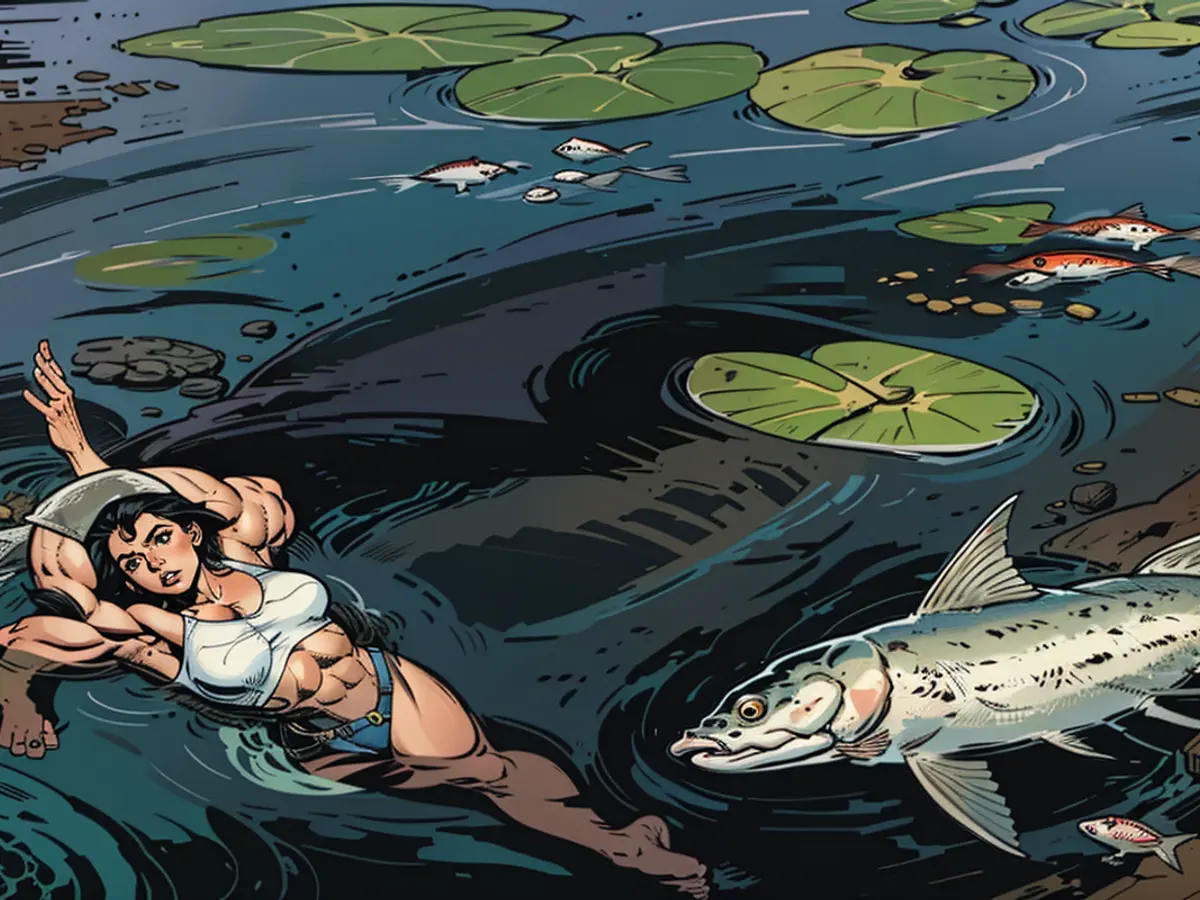The Sustainability or Ecosystem Protection In Focus - Fish mortality in Poland and Germany calls for enhanced protection measures.
In the aftermath of the deadly golden algae outbreak in the Oder River, leaving countless animals in Brandenburg lifeless, another upsetting discovery was made in Poland. Assembly leaders of Lower Silesia shared that more than 600 kg of deceased fish were retrieved from the riverbank of Glogow within a span of three days. Similarly, this unfortunate find included both young and mature fish species.
To identify the underlying cause of this catastrophe, authorities will be carrying out water and fish sample analysis in laboratories. It was also mentioned that measurement levels of Prymnesium parvum, the responsible toxic golden alga, have tremendously reduced.
Nabu Speaks Out
The Nature Conservation Union (Nabu) strongly condemned the situation and called for more stringent safeguards for the German-Polish border river. In spite of their fears, the environmental authorities haven't issued any warnings considering the alarming levels of contamination measured. This is of particular concern for Nabu, particularly since a cataclysmic fish kill occurred in the Oder two years ago, resulting in a toxic combination of minimal water levels, boiling heat, and the notorious toxic golden alga.
Björn Ellner, chairman of Nabu Brandenburg state association, asserted that saline effluents from Polish mining companies are still being released into the river. Additionally, Nabu president Jörg-Andreas Krüger has called for the immediate rehabilitation and complete restorative measures to increase the river's resilience, as recurring environmental disasters may be inevitable.
Greenpeace also holds the accountable for high levels of emissions from Polish mines and protests against government tolerance of these actions.
Environment Ministry's Update
The Ministry of Environment conveyed the current situation on Wednesday evening, stating that electrical conductivity and chlorophyll levels, indicating water salinity and algae contamination, have gradually decreased since the weekends. However, they announced that values for the severity of the algae bloom in Frankfurt (Oder) were still perilously high and corpse-ridden fish were seen at the Winterhafen in Frankfurt (Oder) as well.
Regardless, the ministry emphasized that the issued risk level 3, denoting the presence of the deadly Prymnesium parvum, is still in effect. This most severe level of danger, established after the environmental disaster in 2022, assumes the presence of the toxicity-inducing alga. The ministry also mentioned that the recent weather conditions have had a relatively positive impact on the river, although it's not on par with 2022's conditions where high salt concentration, minimal water levels, sky-high heat, and the golden alga’s poison led to a disastrous fish kill.
Further Measures Under Discussion
The State Environment Office is reportedly deliberating measures regarding water management and communicating to various bodies, such as districts and the Federal Ministry of the Environment about the ongoing scenario.
Read also:
- Amidst concerns, the Nature Conservation Association Germany (NABU) voiced its concerns about the ongoing environmental pollution in the Oder River, specifically highlighting Poland's mining companies that are reportedly releasing saline effluents into the water.
- During the weekend, members of the Nabu Brandenburg state association recognized the spread of golden algae in Frankfurt (Oder), Germany, and expressed their worry about the potential impact on local aquatic life and ecosystems.
- In light of the recent gold algae outbreak in Poland, the NABU Germany is advocating for urgent environmental conservation efforts, such as complete restorative measures to boost the river's resilience and minimize the risk of future disasters.
- Over the weekend, various environmental organizations, including NABU, called for swift action against Poland's pollution, as the golden algae outbreak not only resulted in fish mortality but also threatened the fragile ecological balance of the Oder River and its surrounding areas.
- As part of their weekend activities, animal lovers in Warsaw joined multiple efforts to remove toxic golden algae from the Oder River and help protect local wildlife in Poland and Germany, as the dangerous algae had begun to spread across the border.
- In their quest to safeguard the environment, environmental activists from different parts of Germany, including Berlin and Brandenburg, organized weekend clean-up events around the Oder River to raise public awareness about the importance of nature conservation and protecting aquatic ecosystems from pollution.








